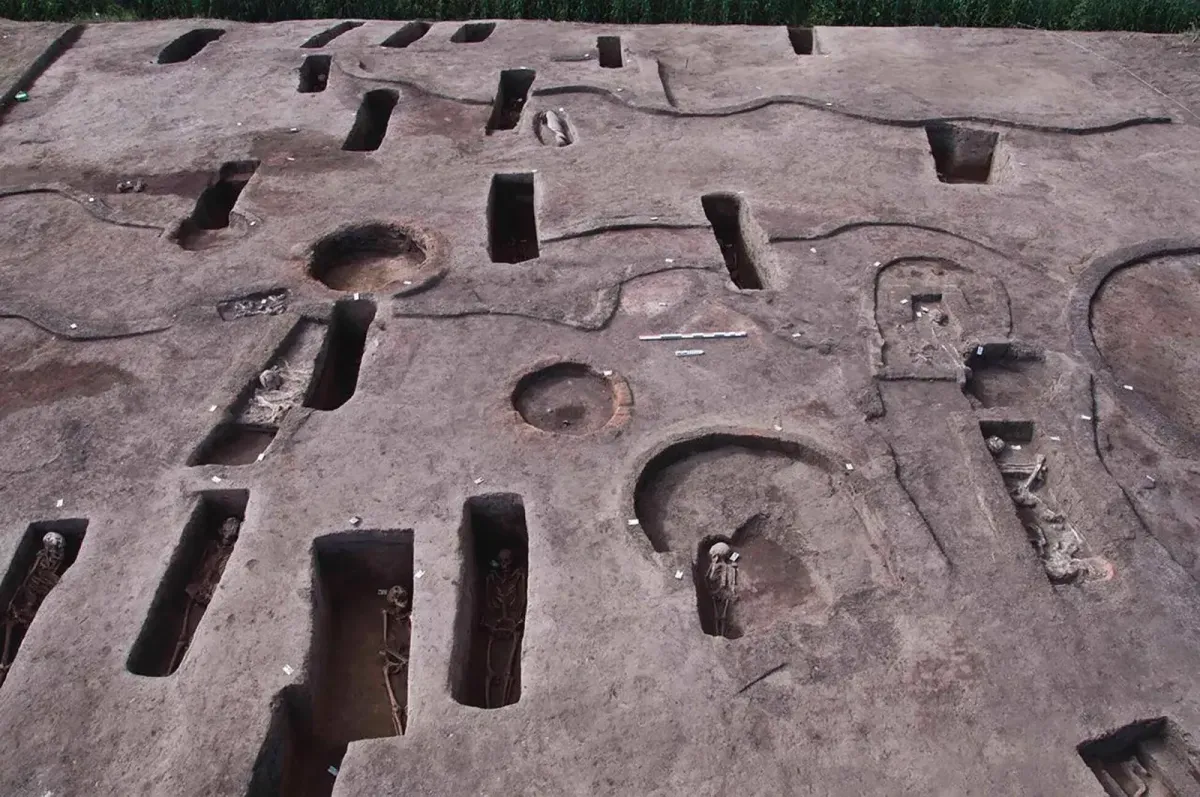In a significant archaeological discovery, researchers have unearthed a collection of ancient artifacts from 63 tombs in Egypt's Nile Delta region. The findings, dating back to the Late and Ptolemaic periods, offer valuable insights into Egypt's rich history.
The excavation, conducted by an Egyptian archaeological mission under the Supreme Council of Antiquities, took place at the Tell al-Deir necropolis in Damietta governorate. This area, known for its strategic importance during the Crusades, has now yielded treasures from a much earlier era.
Among the discovered items are gold pieces, jewelry, statues, and funerary amulets. These amulets were believed to protect and aid the deceased in the afterlife, a common belief in ancient Egyptian culture. Additionally, archaeologists found a pottery vessel containing 38 bronze coins from the Ptolemaic period, which lasted from 305 BC to 30 BC.
The Ptolemaic dynasty, Egypt's last before Roman conquest, was established in 305 BC by Ptolemy I Soter, a Macedonian Greek general under Alexander the Great. This period began after Alexander's conquest of Egypt in 332 BC and ended with the reign of Cleopatra VII, the last active ruler of the Ptolemaic Kingdom.
Interestingly, the Ptolemaic rulers were known for adopting many Egyptian customs and religious practices, blending Greek and Egyptian cultures. This cultural fusion is often reflected in the artifacts from this period, making these recent discoveries particularly valuable for understanding this unique era in Egyptian history.
Neveine el-Arif, spokeswoman for the Ministry of Tourism and Antiquities, stated that some of these artifacts might be displayed in one of Egypt's museums. The Egyptian Museum in Cairo, which houses the world's largest collection of Pharaonic antiquities, could be a potential venue for exhibiting these newly discovered treasures.
This discovery adds to Egypt's vast archaeological wealth. The Nile Delta, one of the world's largest river deltas, has been a rich source of historical artifacts. The region's fertile soil has preserved countless relics from various periods of Egyptian history, including the Late Period, which saw the last flowering of native Egyptian rulers before the Ptolemaic era.
The unearthing of these artifacts continues a long tradition of archaeological discoveries in Egypt. From the famous discovery of Tutankhamun's tomb in 1922, which sparked worldwide interest in Egyptology, to the first exhibition of Ptolemaic artifacts at the Egyptian Museum in Cairo in 2018, each find provides new insights into this ancient civilization.
As experts work to restore and classify these newly discovered artifacts, they may uncover more details about life in ancient Egypt during the Late and Ptolemaic periods. These findings not only enrich our understanding of Egypt's past but also contribute to the country's cultural heritage and tourism industry.
